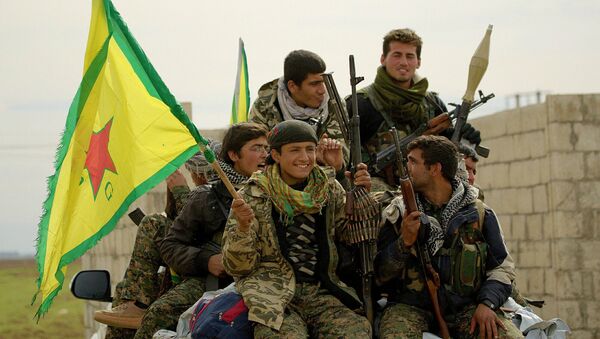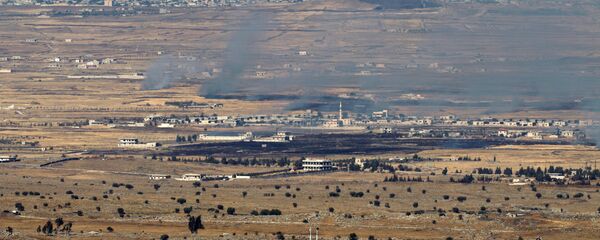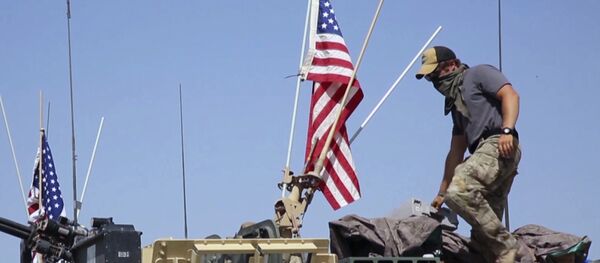US Special Envoy on Syria James Jeffrey said no Kurdish People's Protection Units (YPG) forces will be allowed in the upcoming safe zone between Northern Syria and Turkey, according to the Anadolu News Agency.
Speaking at a press briefing Monday, the envoy said this was agreed upon by US President Donald Trump and his Turkish counterpart, Recep Tayyip Erdogan.
"In terms of the Kurds, what we are working with is with Turkey to have a safe zone of some length along the Turkish border where there would be no YPG forces, because Turkey feels very nervous about the YPG and their ties to the PKK [Workers' Party of Kurdistan]. We understand that President Trump has made that clear to President Erdogan," Jeffrey said.
According to Jeffrey, despite the US' intention to maintain a "very limited number" of troops in Syria, its main mission will still be the defeat of what remains of Daesh, not operating the safe zone.
"We're not really looking at a coalition to be peacekeepers or anything like that. We're asking coalition personnel to continue to contribute and to up their contribution to our de-ISIS operations in Syria, and we're getting a pretty good response initially. But the mission is de-ISIS, defeat of ISIS, it's not to operate in any safe zone," he said. "This is not the end of the fight against ISIS. That will go on, but it will be a different kind of fight."
The YPG is said to constitute the backbone of the SDF, which has been fighting Daesh in northeastern Syria. However, Ankara considers the YPG to be a branch of the PKK, a Kurdish group that fights for greater Kurdish autonomy in Turkey. Both groups deny the alleged connection, Iraqi Kurdish media organization Rudaw.net reports.
Sean Robertson, a Pentagon spokesman, said last month that US troops in the zone would be part of a multinational force. Russian Foreign Minister Sergey Lavrov said the safe zone would be created "on the basis of the agreement that was signed between Turkey and Syria in 1998," known as the Adana agreement.
Jeffrey also added that the US military does not know the location of Daesh leader Abu Bakr al-Baghdadi, who is periodically rumored to have been killed on various battlefields in Iraq and Syria, but who has continued to evade capture.
"No, we don't know where [Baghdadi] is, and finding the top leadership of ISIS or other terrorist groups is always a priority," he said.




